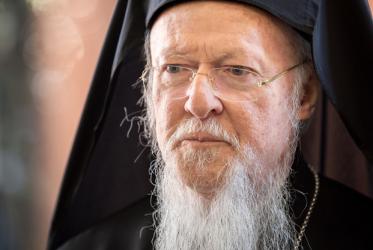Displaying 1 - 20 of 33
Webinar highlights the role of women in post-COVID-19 cooperation
11 February 2021
The Call of Abraham: Blessings and Testings for the Church
29 September 2020
Turning mercy and compassion into action
04 March 2019
"Green Patriarch" to visit Iceland
28 September 2017








